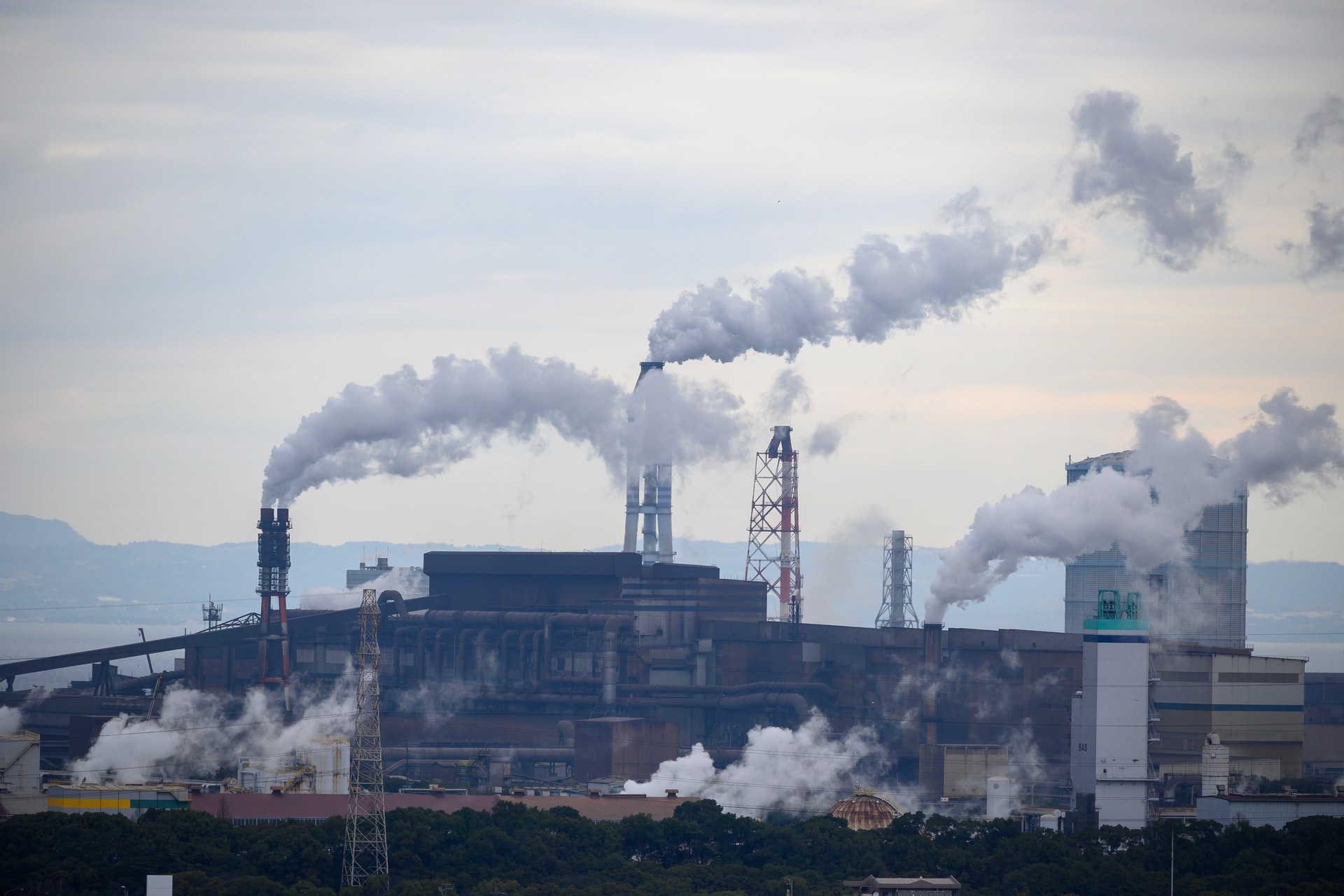by Debolina Banerjee and Katrina Peterson | January 15, 2021
This Monday, January 11th, Senator Carlyle, at the request of Governor Inslee, introduced Senate Bill (SB) 5126 to establish a cap-and-trade system in Washington state. Puget Sound Sage opposes all forms of cap-and-trade policy and calls on all legislators and allies who seek to follow the lead of communities of color to oppose SB 5126.
Effective and just climate policy keeps fossil fuels in the ground and reduces carbon pollution at the source by implementing enforceable caps on pollution. Revenue generation to build the climate resilient and fossil fuel-free infrastructure that we need must be progressive and must not depend on polluters continuing to pollute. Effective investments will be directed by local community oversight and prioritized for low-income Black, Indigenous and People of Color communities disproportionately impacted by climate change and other forms of systemic inequality.
In contrast, cap-and-trade policies create international financial systems that benefit the corporations causing climate change. These are the same corporations who are driving the income inequality, displacement and gentrification harming our communities, and actively opposing progressive policy for a more just future. Cap-and-trade puts a price on carbon pollution and allows polluters to continue polluting. These policies do not reduce carbon emissions, and they hurt communities on the frontlines of climate change.
Cap-and-Trade Creates an International Financial System that Benefits Polluting Corporations
Cap-and-trade policy sets up an international financial system that puts a price on carbon pollution. The policy was developed and is promoted by the fossil fuel industries that climate policy is meant to regulate and transform.1 Where cap-and-trade is adopted, a cap on carbon pollution is established for the jurisdiction – in this case, for Washington state. Corporations within that jurisdiction can forego carbon emissions reductions by purchasing allowances from the state or trading allowances with other corporations. An allowance – as defined in SB 5126 – is an authorization to emit up to one metric ton of carbon dioxide equivalent. In other words, corporations are allowed to purchase carbon pollution that has not been emitted so that they can continue to pollute.
When fully realized, carbon markets in one jurisdiction (like Washington) will be linked to carbon markets around the country and the world. The linking of carbon markets creates a global financial and pollution trading system in which corporations do not reduce their carbon emissions, but instead auction off carbon pollution to the highest bidder and purchase offsets in other parts of the world which harm local communities. By design, cap and trade allows polluters to continue polluting based on the assumption that an “emission reduction achieved in one location has the same beneficial effects as an emission reduction achieved anywhere else.”2 A market-based approach to reducing emissions fails to capture the heavy social costs that communities on the frontlines undergo in the face of climate change. On top of this, studies have shown that cap-and-trade reallocates public tax dollars from the government to polluting corporations.3
Cap-and-Trade Does Not Reduce Carbon Emissions
Cap-and-trade policies have been implemented in California, Quebec, and the European Union, and have garnered opposition from frontline environmental justice communities fighting to keep fossil fuels in the ground. Since the implementation of cap-and-trade, studies have shown that carbon emissions in California have actually increased. A 2018 study of California’s cap-and-trade program found that the electrical sector imported cheap out-of-state electricity while in-state emissions kept rising.4 A 2020 study by UC Berkeley found that local emissions have increased in neighborhoods where companies who purchased offsets are located.5
As a system, international cap-and-trade markets do not guarantee carbon pollution reductions – in either the host country or in the countries where the offsets are purchased.6 The system does not reduce pollution at the source and offset projects are not shown to reduce the pollution they are purchased to offset.
Cap-and-Trade Creates “Offsets” that Harm our Communities, Globally and Locally
In a cap-and-trade system, corporations purchase offsets that fund projects marketed as offsetting the pollution they are emitting. These projects, like buying development rights of land, often harm marginalized communities around the world and disproportionately harm the communities that surround the polluting industries by authorizing corporations to continue to pollute in their home communities. In California, cap-and-trade “regulated” facilities are disproportionately sited in low-income and people of color neighborhoods.7 As a result, these fenceline communities suffer disproportionately high rates of respiratory and cardiac diseases because of exposure to carbon emissions.8 These diseases have increased since the implementation of cap-and-trade.
Around the world, carbon offset projects have disproportionately harmed marginalized communities.9 In India, hydroelectric power projects funded by carbon offsets have threatened the livelihood and existence of small-scale farming communities who were otherwise employing sustainable, locally appropriate agricultural practices.10 In Brazil, carbon offsets from Acre converted locally sustainable rubber plantations to unsustainable cow pastures.11 Led by the World Bank and the United Nations, REDD and REDD+ (Reducing Emissions from Deforestation and forest Degradation) have been particularly devastating for Indigenous and forest-dependent communities.12 These communities are convinced that “they will receive compensation for not using their forests, or even for just continuing to follow their customary practices unhindered. In fact, however, communities often find themselves subject to new restrictions on their livelihood activities, new accounting burdens, and even overt land grabs and criminalization, while the promised money is often not forthcoming and internal community tensions increase. Very few communities are even informed that the objective of the contract they are being offered is to manufacture pollution rights for faraway industries and business sectors.”13
Cap-and-Trade Harms All of Us, But it Disproportionately Harms Communities of Color on the Frontlines of Climate Change
While SB 5126 is marketed as a climate bill, it will not reduce carbon emissions. SB 5126 will instead build out a global financial and pollution trading market run by corporations. It will put a price on carbon pollution, allow corporations to continue polluting without reducing emissions, expose fenceline communities to harmful toxins, and colonize the land of Indigenous and forest-dependent communities.
No amount of redlining or editing this bill will change the fact that SB 5126 implements a cap-and-trade framework built to benefit the corporations driving climate change, the same corporations driving income inequality, gentrification, and displacement in our communities.
Attempting to sell this policy by directing investments to frontline communities in Washington or creating an Environmental Justice and Equity Advisory Panel is a tokenizing and insulting attempt to buy off communities of color. SB 5126 does not change the financial and corporate policies that harm communities of color. It reinforces and expands them.
We call on all of our allies to join Puget Sound Sage in opposing SB 5126. We specifically call on the Climate Alliance for Jobs and Clean Energy and all of its members to join us in opposing SB 5126. As a founding member of the Alliance, Puget Sound Sage urges you to remember your commitment to center communities of color in the creation of climate policy. This is your opportunity to live into your stated commitment to environmental justice and racial equity.
1 The Political History of Cap and Trade | Science | Smithsonian Magazine, https://www.smithsonianmag.com/science-nature/the-political-history-of-cap-and-trade-34711212/.
2 Protecting Carbon to Destroy Forests, https://www.tni.org/files/download/redd_and_land-web.pdf
3 The Theory of Public Goods and Their Efficient Provisions, The Behavioral Economics of Climate Change, https://www.sciencedirect.com/science/article/pii/B9780128118740000027
4 Carbon trading, co-pollutants, and environmental equity: Evidence from California’s cap-and-trade program (2011-2015), Cushing et. al, July 2018, https://journals.plos.org/plosmedicine/article?id=10.1371%2Fjournal.pmed.1002604
5 California’s Cap-and-Trade Program Has Proven Effective, Now lets make it Equitable, https://bppj.berkeley.edu/2020/04/10/californias-cap-and-trade-program-has-proven-effective-now-lets-make-it-equitable/
6 Has Joint Implementation reduced GHG emissions? Lessons learned for the design of carbon market mechanisms, https://mediamanager.sei.org/documents/Publications/Climate/SEI-WP-2015-07-JI-lessons-for-carbon-mechs.pdf
7 Carbon trading, co-pollutants, and environmental equity: Evidence from California’s cap-and-trade program (2011-2015), https://journals.plos.org/plosmedicine/article?id=10.1371%2Fjournal.pmed.1002604
8 Carbon trading, co-pollutants, and environmental equity: Evidence from California’s cap-and-trade program (2011-2015), https://journals.plos.org/plosmedicine/article?id=10.1371%2Fjournal.pmed.1002604
9 Six Arguments Against Carbon Trading | Climate & Capitalism. https://climateandcapitalism.com/2008/09/29/carbon-trading-the-wrong-way-to-deal-with-global-warming/
10 Bhilangana III Hydro Power Project: how 24 MW destroy 14 villages, https://carbonmarketwatch.org/2009/10/12/bhilangana-iii-hydro-power-project-how-24-mw-destroy-14-villages/
11 An Even More Inconvenient Truth, https://features.propublica.org/brazil-carbon-offsets/inconvenient-truth-carbon-credits-dont-work-deforestation-redd-acre-cambodia/
12 Protecting Carbon to Destroy Forests, https://www.tni.org/files/download/redd_and_land-web.pdf
13 Carbon-Pricing-A-Critical-Perspective-for-Community-Resistance https://www.ienearth.org/wp-content/uploads/2017/11/Carbon-Pricing-A-Critical-Perspective-for-Community-Resistance-Online-Version.pdf
Photo by Kouji Tsuru on Unsplash

